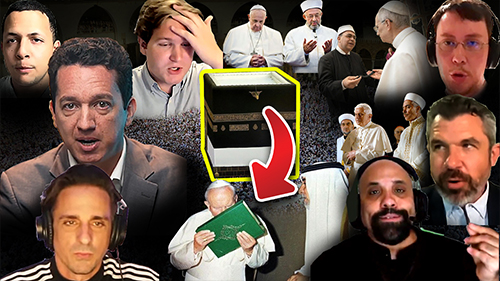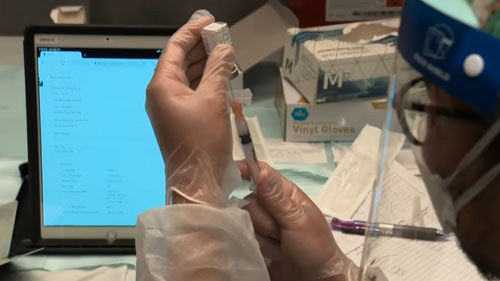| Recent Featured Videos and Articles | Eastern “Orthodoxy” Refuted | How To Avoid Sin | The Antichrist Identified! | What Fake Christians Get Wrong About Ephesians | Why So Many Can't Believe | “Magicians” Prove A Spiritual World Exists | Amazing Evidence For God | News Links |
| Vatican II “Catholic” Church Exposed | Steps To Convert | Outside The Church There Is No Salvation | E-Exchanges | The Holy Rosary | Padre Pio | Traditional Catholic Issues And Groups | Help Save Souls: Donate |  |









 " />
" /> " />
" /> " />
" /> " />
" /> " />
" />




Bellarmine: The Cardinals & A Council Cannot Judge A Pope
In our recent video, Novus Ordo Supporter Demolished On Loss Of Office & Heresy, we refuted the grave misuse and mistranslations of St. Robert Bellarmine that are widespread among defenders of the Vatican II Sect. Below are some additional quotes from St. Robert Bellarmine. They make it extremely clear that, in his view, neither a council nor all the cardinals gathered together nor anyone else can judge a pope while he’s still considered the pope. These passages further prove that Bellarmine believed that a manifest heretic would lose authority and cease to be pope prior to any such judgment or intervention. When Bellarmine refers to a manifest heretic being judged, he’s referring to someone who has already ceased to be the pope.
St. Robert Bellarmine, De Conciliis, Book 1, Chap. 10: “For on account of suspicions concerning the doctrine and life of the pontiffs, there were never convened any councils except provincial or national. Neither does it seem at all necessary for a major council [to be gathered for this reason]; for as long as [dum] he is truly Pontiff, he cannot be judged by any council, unless perhaps he himself grants power to the council for examining his own case, and of passing a discretionary sentence, not nevertheless a coercive sentence.”
St. Robert Bellarmine, De Romano Pontifice, Book 2, Chap. 26: “… the Roman Pontiff is able to be judged by no one on Earth… even if he had no temporal power, he cannot in any manner be judged on Earth by any Christian princes, whether secular or ecclesiastical [i.e. bishops] nor by all simultaneously gathered in council (neque ab omnibus simul in Concilio congregatis).”
St. Robert Bellarmine, De Conciliis, On Councils, Book 1, Chap. 9: “... General Councils should become acquainted with controversies that have sprung up around the Roman Pontiff, but not audaciously to pass sentence against him.”
St. Robert Bellarmine, De Romano Pontifice, Book 2, Chap. 30: “Second, to be deposed from the Pontificate unwillingly is without doubt a punishment; therefore the Church deposing the Pontiff against his will without doubt punishes him. But to punish is of a superior and judge… Therefore the fifth opinion is true. A manifestly heretical pope automatically ceases to be pope and head, just as through himself he ceases to be a Christian and a member of the Body of the Church; wherefore he can be judged and punished by the Church. This is the position of all the ancient fathers, who teach that manifest heretics immediately (mox) lose all jurisdiction.”
St. Robert Bellarmine, De Romano Pontifice, Book 2, Chap. 29: “It is lawful, I say, to resist him by not doing what he commands and by preventing him from accomplishing his will; nevertheless it is not lawful to judge, punish or depose him; because this is only [the role] of a superior.”
The final passage is another one that’s abused by Vatican II Sect heretics.
St. Robert Bellarmine, De Conciliis, Book 1, Chap. 21: “In addition to this is the fact that the Pontiff at a Council is not only the Judge, but has many colleagues, that is, all the Bishops, who, if they could convict him of heresy, would also be able to judge and depose him, even against his will.”
Some cite this passage to argue that Bellarmine held that a Roman Pontiff could be judged and deposed against his will! In the process they grossly misunderstand Bellarmine and accuse him of the heresy of Conciliarism; for if a council could depose a valid pope against his will, then it is superior to a pope. Indeed, Bellarmine explicitly teaches (e.g. De Romano Pontifice, Book 2, Chap. 30) that to depose another unwillingly is to inflict a punishment and involves the role of a “superior”. That’s why he adopts the position that a manifest heretic automatically ceases to be pope. In the passage cited above from De Conciliis in Book 1, Chap. 21 (which the Vatican II Sect members misuse), Bellarmine is not dealing with loss of office. He’s responding to an objection that Protestants make to Roman Pontiffs presiding at general councils. In responding to that objection, Bellarmine simply states that in the context of such a council there would be many judges who, if they could convict someone of heresy, could then judge and depose him “even against his will”. He was not teaching, as the neo-conciliarists of the Vatican II Sect contend, that the person who might thus be convicted, judged, and deposed even against his will remained a valid pope until the conviction and judgment. On the contrary, he held that “so long as” the man is truly pontiff “he cannot be judged by any council” (De Conciliis, Book 1, Chap. 10).
In fact, since Bellarmine teaches that to convict someone of heresy enables that person to be judged and deposed even against his will (De Conciliis, Book 1, Chap. 21), and he repeatedly teaches that a valid Roman Pontiff cannot possibly be judged and deposed against his will by any council (for then the Roman Pontiff would be inferior to the council), that means that Bellarmine did not believe that a Roman Pontiff (while he is considered the Roman Pontiff) could be convicted of heresy. Only someone who has already automatically (ipso facto) ceased to be pope in the sight of the Church for manifest heresy can be thus convicted and deposed against his will.
Sign up for our free e-mail list to see future vaticancatholic.com videos and articles.
Recent Content
^